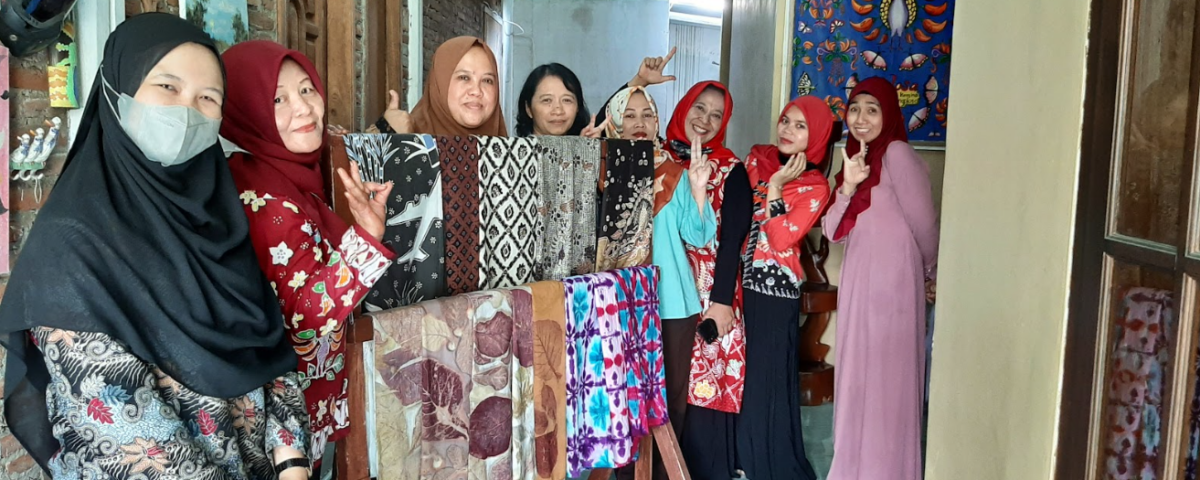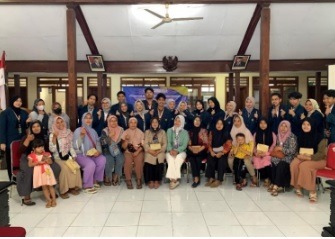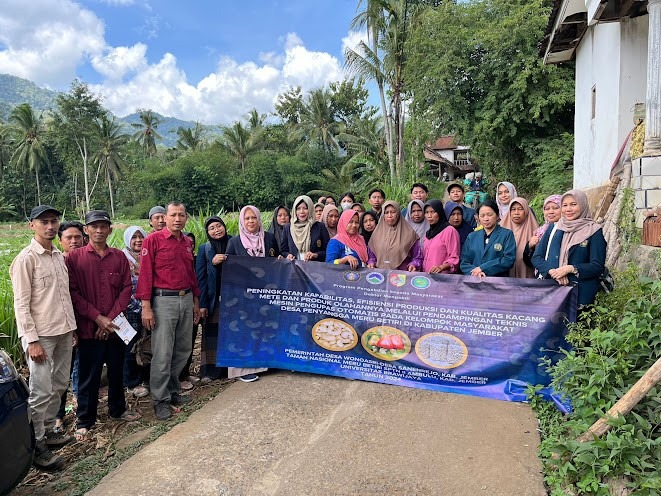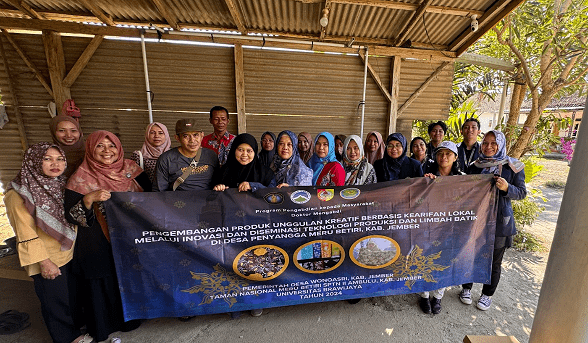UB lecturer conjures Kalosa plant into beautiful Batik

FTP UB builds 50 SMEs in Batu through Matching Fund Program
September 8, 2023
FTP UB cooperates with PT Spraying Systems Indonesia
September 12, 2023Donowarih village, Karangploso district is one of the border areas of Malang regency and Batu city which is quite strategic to support Batu City as the largest tourist destination in East Java. This village has several productive community groups, namely the peasant women’s Group (KWT) “Sumber Rejeki” and The Batik Association “Kalosa” which is majority managed by housewives. The products produced are in the form of food and beverages, such as cassava miller crackers, mbothe, and powdered drinks with orange, ginger, bandrek and instant kucnaj raw materials marketed in Malang Raya. Paguyuban Batik and handicrafts” KALOSA “which produces batik and handicrafts is one of the pioneer producers of batik in Malang, East Java with the main products are batik fabrics (writing cloth, ecoprint, shibori) and derivative products (umbrellas, clothes, accessories, shoes, and bags) trademarked”Kalosa”. The impact of the existence of KWT and Batik community in Donowarih village, Karangploso district, Malang regency include: empowering productive communities through local material-based businesses, optimizing regional potential for village economic improvement, and supporting the development and improvement of community group management of processed food, Batik and Kalosa crafts.
The problems faced by KWT and The Batik community in Donowarih Village are the limitations of technology in the use of ploso or kalosa plants to become competitive and high economic value superior products to empower the surrounding community. Therefore, there is a need for dissemination of appropriate scale technology and proven technology for transfer in community empowerment, including the use of kalosa flowers as a natural dye for batik and the use of kalosa flower leaves for instant drinks that are safe and able to support health.
Community empowerment activities conducted by the FTP team chaired by Siti Asmaul Mustaniroh with S2 TIP students through the dissemination of technology are given several color alternatives from the use of kalosa plants (flowers). Through the process of chopping, freezing, drying with technology that is easy to implement by partners produce 6 color alternatives for natural dyes and instant drinks. The nutritional content in kalosa instant drinks will still be tested in the laboratory to condition that they can be consumed safely and healthily for consumers.
- Category in:
- News




